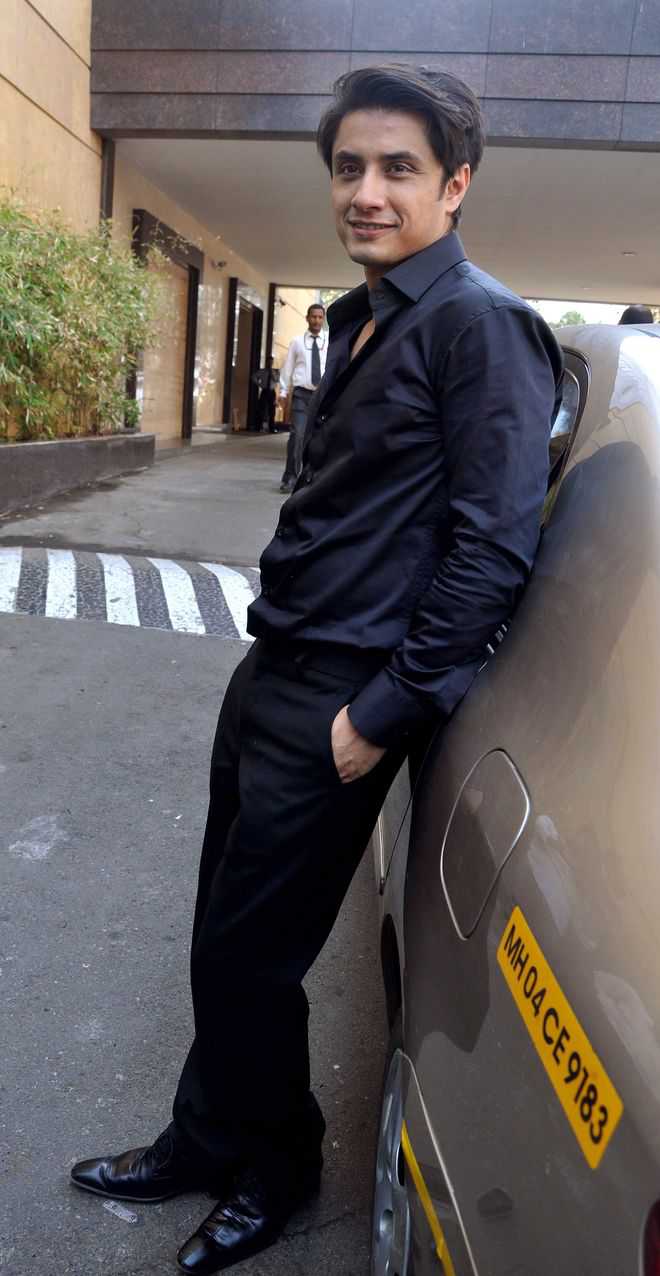
Silence is not golden: Ali Zafar has sought an apology from the musician and slapped her with a defamation suit
Faiqa Mansab
There’s no denying that the #MeToo movement has many men much worried. Little surprise then that most men are lashing out at women, and the movement, in the most puerile manner possible. Arguments against the movement include: women point fingers to get attention, to get famous, to get money — none of which is actually true because many women are already famous, established in their fields, and financially independent. Like Meesha Shafi.
Shafi is not the first Pakistani woman to point a finger at a famous man. Ayesha Gulalai did it a few months ago against Imran Khan, the cricketer-turned-politician, and majority of Pakistani people did not believe Gulalai. In fact, there was an article in Express Tribune Pakistan by someone who titled his article on Meesha Shafi and the #MeToo movement, The Gulalai Card. The entire piece was about how difficult it is to trust women when they speak up against famous men because who knows what their motives might be. He only grudgingly gave about 10 words of his article to the possibility that the accusation of Meesha Shafi might actually be true. He showed Gulalai no such courtesy.
‘Innocent until proven guilty’ has suddenly become the focus of all such arguments. When famous men, like Ali Zafar, Bill Cosby or Imran Khan, loved by millions, are named as harassers, people take it as a personal affront to themselves. They believe that the accusation is a lie, and that all the women who come forward to say they too had similar experiences, are all liars and want nothing but fame and celebrity status.
In 2005, General Pervez Musharraf famously said that Pakistani women get raped to get the attention of the West. These were the times when rapes of Mukhtar Mai, a woman from a small town in Punjab province, and Shazia Khalid, a physician, were getting a lot of international press. Mai had been gangraped with the permission of her village elders. An all-male jirga had passed the judgment because her younger brother had been seeing a girl from the other tribe. Mai went to court, and yes, she got a great deal of attention because her own government wasn’t willing to help, the courts of her country had failed her, but she fought back. She still lives in the same village and runs two schools for girls there. Her rapists were acquitted repeatedly by various courts. It was almost as if they wanted to break her fighting spirit. They were unable to do it though. She is still fighting for the rights of young women. Just like another Pakistani female.
Malala Yousafzai was hated and maligned by most Pakistanis too after the attack on her by Taliban. People insisted she had shot herself for a chance to get a UK passport, even though the Taliban accepted responsibility for the attack.
A woman who survives rape, assault, and chooses to speak up against harassment, has to deal with counter-accusations rather than see the man or men brought to justice. Her lifestyle, her clothes, where she was and at what time are more important than what the man did to her. The strangely widely-accepted idea that men have ‘base sexual desires’ and that they are ‘tempted’ by women who wear short skirts, red lipstick, go out at night, party and drink is the inherently flawed logic that most patriarchal men and women depend on to nullify the victim’s claim.
Many are questioning why Shafi, or Gulalai or any victim, didn’t say anything immediately when the harassment happened. They ask, what is the proof? Most of these people are either men or women who are either too scared to accept that they too have been victims of the same thing or are actually lucky enough to not have been harassed yet. It is possible.
Many women are also unwilling to view themselves as victims so they pretend that harassment never happened to them. Harassment is a traumatic experience, and many people haven’t figured that out yet. They seem to expect that educated, liberal women, should just shrug an incident like that off and immediately start calling up people and telling them about it. And if they didn’t, it’s because they didn’t mind what happened. That is a rather simplistic view of something quite painful.
Pakistan recently had another setback when the Punjab government tried to pass a law against domestic violence and all the Muslim clerics raised a hue and cry against it and fought against the women’s protection bill.
Meesha Shafi’s decision to speak out against another celebrity is a huge step. Ali Zafar apromptly sued her for a billion rupees, and his innocence is being argued for by everyone on social media. People question the veracity of Shafi’s claims on the grounds that she has always been so liberal minded. They questioned her lifestyle, asked what harassment means when she is often seen touching, hugging and kissing men she calls her friends. This kind of stance emerges from a place of misogyny, where women who are in public life, in a public space even, don’t have rights to privacy, to their bodies, to consent.
A woman being in public is not permission. A woman in a skirt is not consent. A woman, just like men, retains her rights to her body, to consent, no matter where she is, in what clothes, at time time and in which area. Her body remains her own. Just like men. There is no difference. Women in public space are not public property.



























